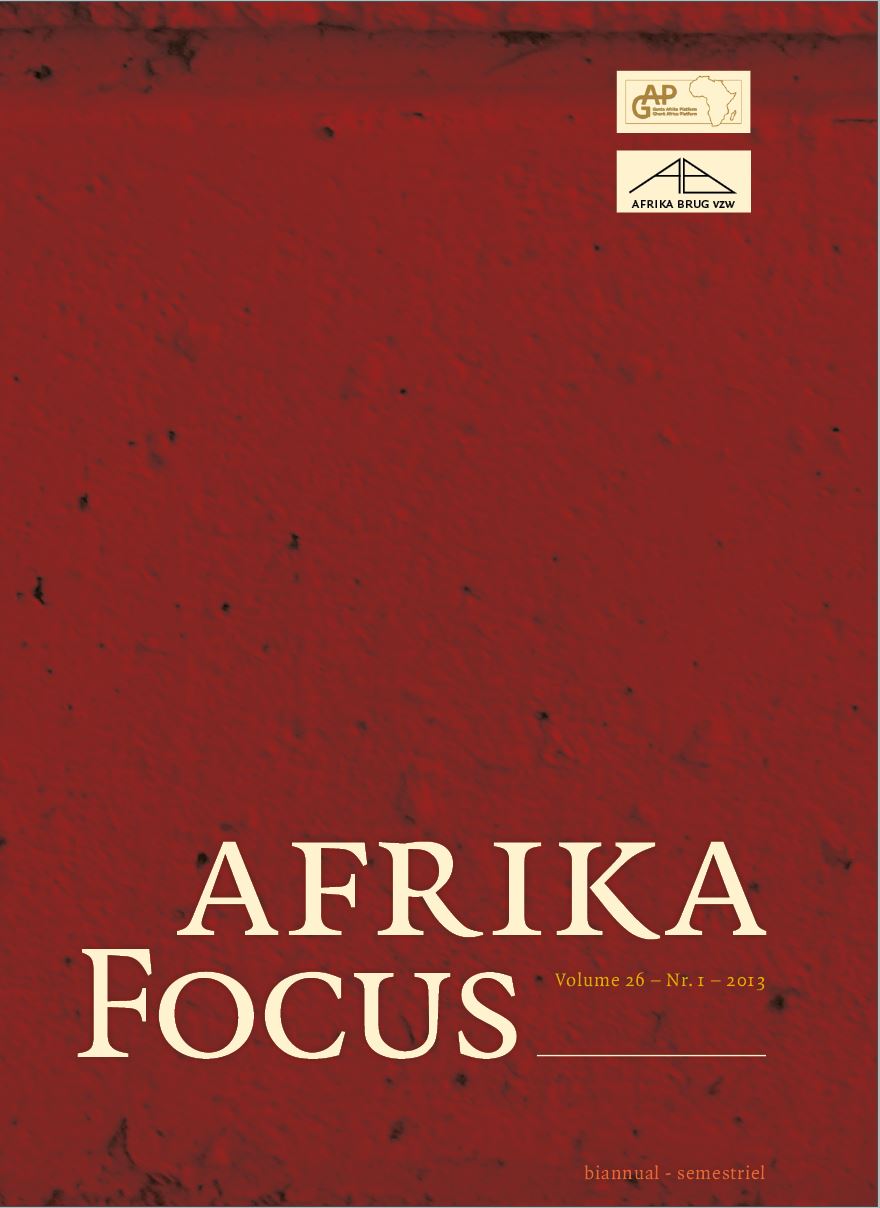Etude de la néologie terminologique en Bantu: cas de la cilubalisation des termes français des équipements et matériels de bureau
DOI:
https://doi.org/10.21825/af.v26i1.4933Abstract
The Democratic Republic of Congo, like many African countries, has an important public and private administration, but one whose performance and productivity are generally considered to be low. Numerous efforts to modernize and improve the productivity of this administration have been made, notably by recourse to modern office equipment and supplies. In this doctoral study we label the equipment and supplies under the denomination of western technologies which signals their provenance. A close examination of the documents which catalogue and describe the functioning of these technologies, reveals that the overwhelming majority of these documents are written in either French or in English. In other words, the western technologies which are used in the Congolese public administration are denominated in the idioms of theirs designers and their operations are described in the same idioms. These technologies which range from simple to sophisticated tools (equipment for word processing or for electronic transmission of data) can be considered as the symbols of modern culture which generally is dominated by the western countries and some industrialized nations of Asia (Korea, Japan, Taiwan). The technologies are objects that are foreign to the cultures of Africa and the Congo. With regard to this situation, we argue that these imported western technologies must be localized when they arrive in African countries. To be localized means that the relevant documents be translated into the languages of the host countries in order to improve the efficiency with which the users are able to use the technologies. Our research demonstrates that when these imported technologies arrive in the Democratic Republic of Congo they are frequently under-utilized. This is because the occidental languages predominate in the operation documentation which are oriented for use within the social and legal contexts of western countries. Our analyses indicate that this under-utilization is essentially due to a terminological deficiency based on an assumption that the Congolese national languages are not sufficiently able to support the imported technologies. Our analyses also show that this assisted modernization of public administration in the Democratic Republic of Congo with the recourse to western technologies simultaneously poses organizational, economic and linguistic problems. Our conclusions not only point to operation difficulties but also to dif culties operators have nding the correct terms, which makes it more likely that items will be named in their own languages. It is in this context that we identify the link between economics and linguistics. From a linguistics position, the need of multilingual terminological research is clear, research that supports the users in the efforts to adapt their languages as languages of reception for these imported technologies. Eager to explore this eld in connection with the Bantu languages and cultures we began our research for the thesis. Our thesis is articulated around four following ac- tivities: (i) development of the nomenclature having to be used as a sample of the study; (ii) the globalization or the methodological route of the terminological appropriation of western technologies which are addressed by our research; (iii) the study of the denominating terms of the afore-mentioned technologies; (iv) the study of the mechanism of an apparatus with regard to technical terms in Ciluba. The four activities outlined above will be developed over a planned eight chapters which constitute our thesis. This approach provides the focus for our research objectives, all of which are informed by one overriding need: providing the ciluba with one specialized glossary of office equipment and supplies. Key words: Neology, terminology, translation, language planning, Bantu African languages, Ciluba, development of resourced languages, equipment and office supplies, applied linguisticsDownloads
Published
How to Cite
Issue
Section
License
Authors who publish with this journal agree to the following terms
Authors retain copyright and grant the journal right of first publication with the work simultaneously licensed under a Creative Commons Attribution License that allows others to share the work with an acknowledgement of the work's authorship and initial publication in this journal.
Authors are able to enter into separate, additional contractual arrangements for the non-exclusive distribution of the journal's published version of the work (e.g., post it to an institutional repository or publish it in a book), with an acknowledgement of its initial publication in this journal.
Authors are permitted and encouraged to post their work online (e.g., in institutional repositories or on their website) prior to and during the submission process, as it can lead to productive exchanges, as well as earlier and greater citation of published work (See The Effect of Open Access).


